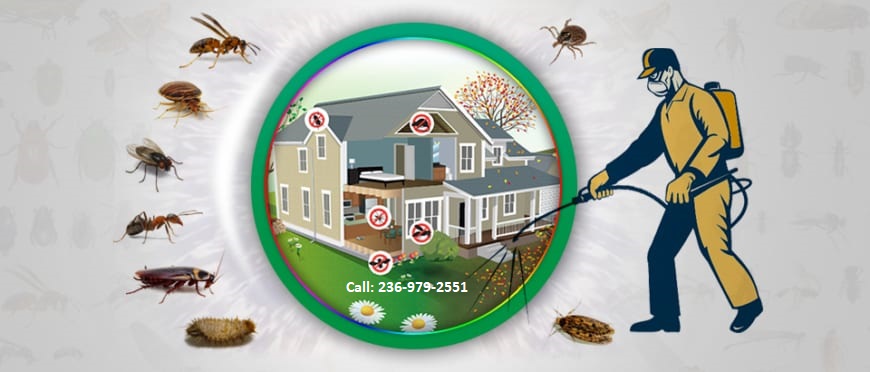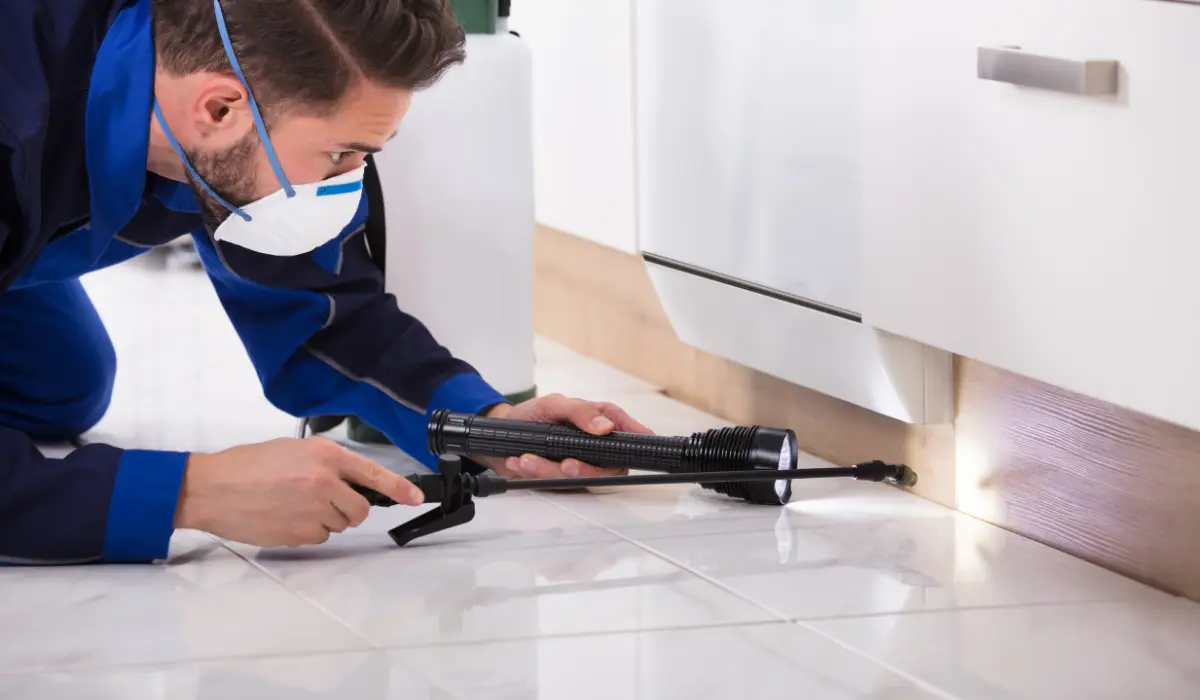Safe and Trusted Pest Control for Lasting Protection
The value of safe and trusted pest control can not be overemphasized, especially in a period where environmental concerns are vital. Effective pest monitoring requires a multifaceted approach that stabilizes eco-friendly integrity with the requirement for effective bug suppression. By discovering environmentally friendly options and incorporated bug management approaches, homeowners can attain long-term security against intrusive types while safeguarding advantageous ecosystems. The subtleties of these methods might not be instantly clear, prompting a more detailed assessment of the techniques that can lead to sustainable insect control results. What steps can be taken to make sure both safety and efficiency in insect monitoring?
Recognizing Insect Control Methods
Insect control includes a variety of approaches aimed at handling and removing unwanted bugs and rodents that can intimidate both health and home. Recognizing these methods is critical for efficient insect management.
The key groups of bug control methods include mechanical, organic, and chemical strategies. Mechanical techniques entail physical barriers and traps to protect against pest entrance and capture undesirable types. As an example, using displays on windows or employing sticky traps can substantially reduce bug populations without presenting harmful compounds.

Chemical bug control is typically one of the most identified approach, utilizing chemicals to remove parasites. These chemicals can be efficient however have to be utilized with caution to prevent damaging effects on non-target types and the atmosphere.
Advantages of Eco-Friendly Solutions
How can environmentally friendly solutions change bug control methods? The fostering of green insect control approaches provides various benefits, considerably enhancing the performance and safety of bug monitoring.

One more advantage is the positive effect on regional biodiversity. Environment-friendly remedies are developed to target particular bugs while preserving helpful insects and wildlife, promoting a well balanced ecological community. This approach aligns with the growing consumer demand for lasting techniques, boosting the online reputation of parasite control suppliers.
Integrated Insect Monitoring Techniques
The implementation of environment-friendly remedies normally leads to the fostering of Integrated Pest Management (IPM) strategies, which further boost bug control efficacy. IPM is an all natural strategy that integrates multiple techniques to manage bug populaces while decreasing ecological influence. This approach stresses the use of biological, social, mechanical, and chemical controls, guaranteeing a lasting and well balanced technique of insect administration.
One essential element of IPM is the extensive assessment of parasite task and environmental problems. By checking insect populaces and recognizing their life cycles, specialists can carry out targeted treatments that interrupt the bug's environment or lifecycle, lowering reliance on chemical pesticides. In addition, cultural methods such as plant rotation and habitat manipulation can significantly reduce insect establishment and reproduction.
Another critical element is using organic control agents, such as valuable bugs or bacteria, which can normally reduce bug populaces. When chemical applications are essential, IPM prioritizes using low-risk pesticides and applies them precisely, lessening exposure to non-target microorganisms and humans.
Incorporating IPM methods not just improves insect control efficiency however additionally promotes a much safer community, aligning with the growing demand for sustainable techniques in bug management.
Safe Practices for Home Owners
Comprehending the value of safe methods in insect control can empower homeowners to effectively take care of insect problems while safeguarding their health and the atmosphere. Implementing safe approaches and preventative procedures is essential in minimizing direct exposure to damaging chemicals.
Property owners must initially examine their environment for problems that attract bugs, such as standing food, water, and mess waste. Frequently cleansing and sealing entry points can discourage insects from getting into the home. Using all-natural deterrents, such as necessary oils or diatomaceous planet, can supply efficient choices to chemical pesticides.
When chemical treatments are needed, house owners must choose for items that are specifically identified as risk-free for household usage. It is vital to follow application guidelines carefully to prevent too much exposure. Moreover, using targeted treatments in locations where bugs are determined, instead than blanket spraying, can substantially decrease chemical use.
Lastly, preserving open interaction with parasite control professionals is essential. House owners should ask about the safety and security of items made use of and request environmentally friendly choices whenever possible. By taking on these risk-free techniques, property owners can develop a much healthier living atmosphere while efficiently taking care of bug issues.
Tips for Long-Term Security
Establishing a bug management strategy that emphasizes long-term security can significantly boost the efficiency of the risk-free practices previously talked about. To attain this, homeowners must implement routine assessments of their residential property, focusing on concealed areas such as attic rooms, cellars, and crawl spaces. Early discovery of pest activity is important in stopping invasions from holding.
Additionally, keeping a clean setting is crucial. This consists pest control coquitlam bc of appropriate food storage space, promptly cleaning up spills, and routinely dealing with garbage. These techniques lower attractants that draw parasites right into the home. Securing entrance points, such as cracks around windows and doors, can properly obstruct possible bug accessibility.
Landscape design should likewise be taken into consideration; maintaining plants trimmed and preserving a distance between vegetation and the home minimizes concealing areas for insects. Using natural deterrents, such as crucial oils or diatomaceous earth, can additionally dissuade invasions without resorting to rough chemicals.
Finally, collaborating with an expert insect control service for regular assessments can supply an additional layer of safety and security. These specialists can use customized recommendations and advanced therapies, ensuring that your home stays secured versus parasites in the long-term.
Final Thought
In conclusion, reputable and risk-free parasite control needs a complex strategy that stresses eco-friendly approaches and integrated pest monitoring. By executing natural deterrents, conducting normal assessments, and keeping proper hygiene, homeowner can significantly minimize bug populations while shielding valuable bugs and the setting. Collaboration with expert exterminator coquitlam insect control solutions enhances the efficiency of these strategies, guaranteeing customized services that supply lasting protection and comfort against future infestations.
Effective pest monitoring requires a diverse technique that balances eco-friendly honesty with the need for effective insect suppression. The fostering of environmentally friendly pest control approaches supplies numerous advantages, considerably enhancing the effectiveness and safety of insect administration.The execution of green services naturally leads to the fostering of Integrated Bug Monitoring (IPM) approaches, which better boost bug control effectiveness. exterminator coquitlam. By pest control service coquitlam keeping an eye on bug populations and determining their life cycles, specialists can apply targeted treatments that interfere with the parasite's habitat or lifecycle, decreasing reliance on chemical pesticides.In conclusion, trusted and safe bug control calls for a diverse method that highlights green approaches and incorporated pest monitoring